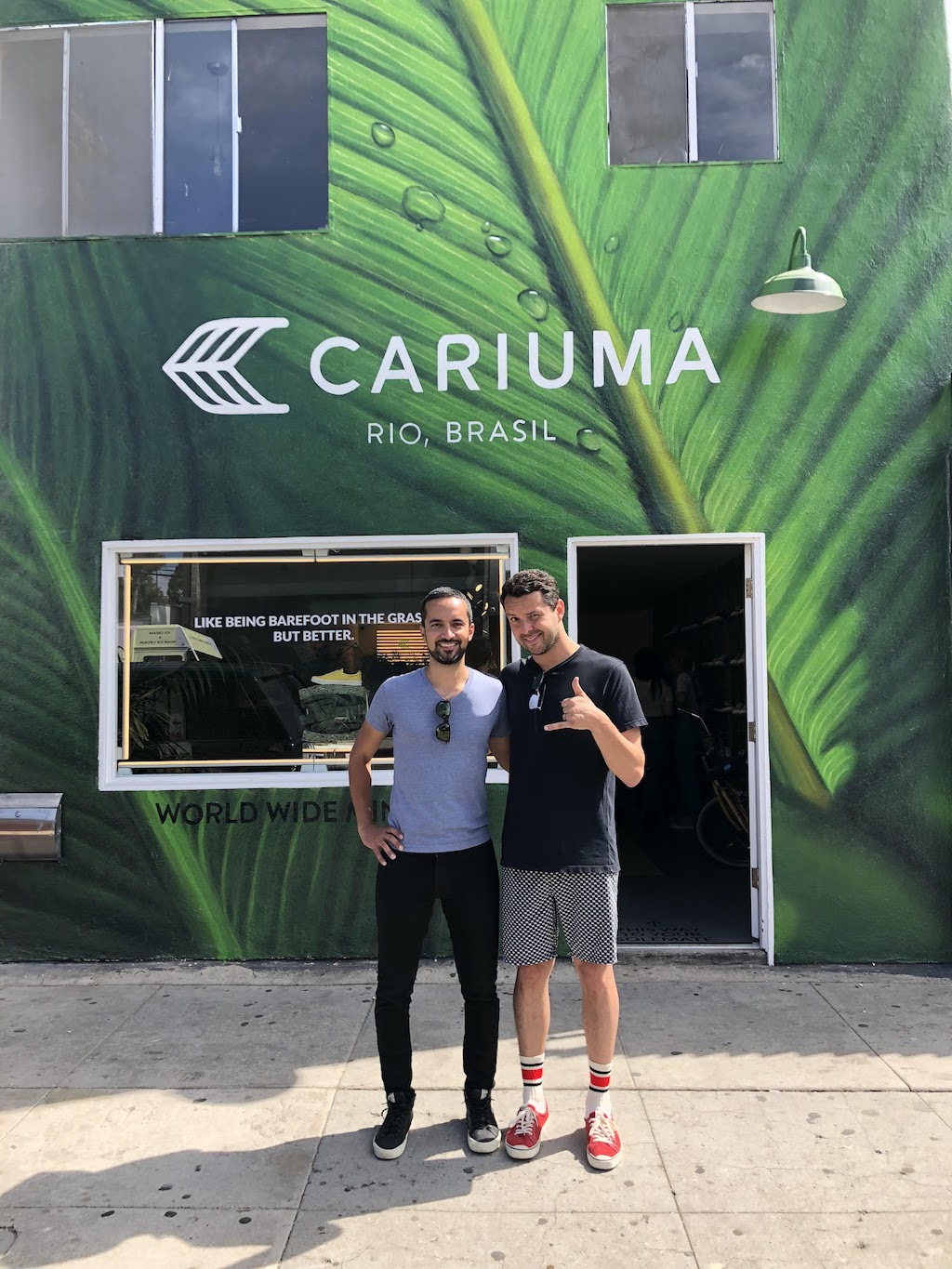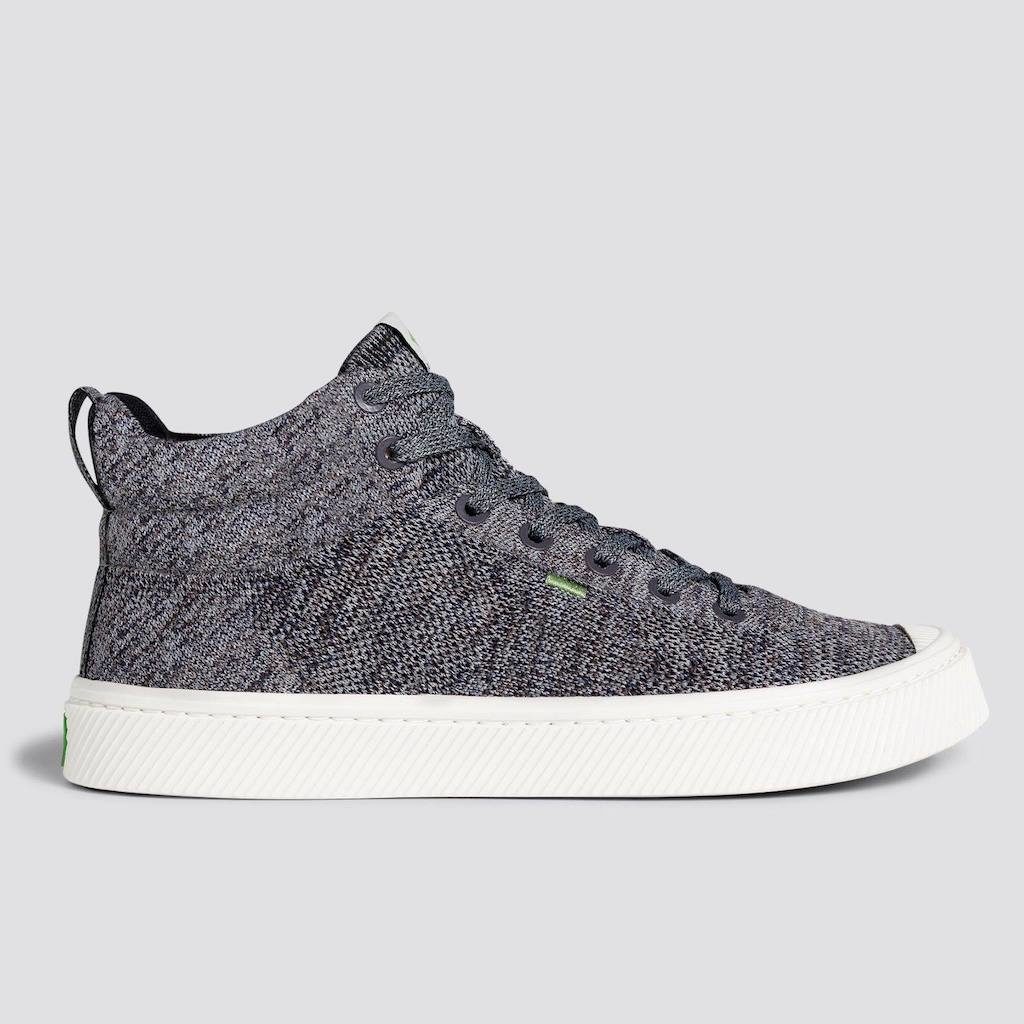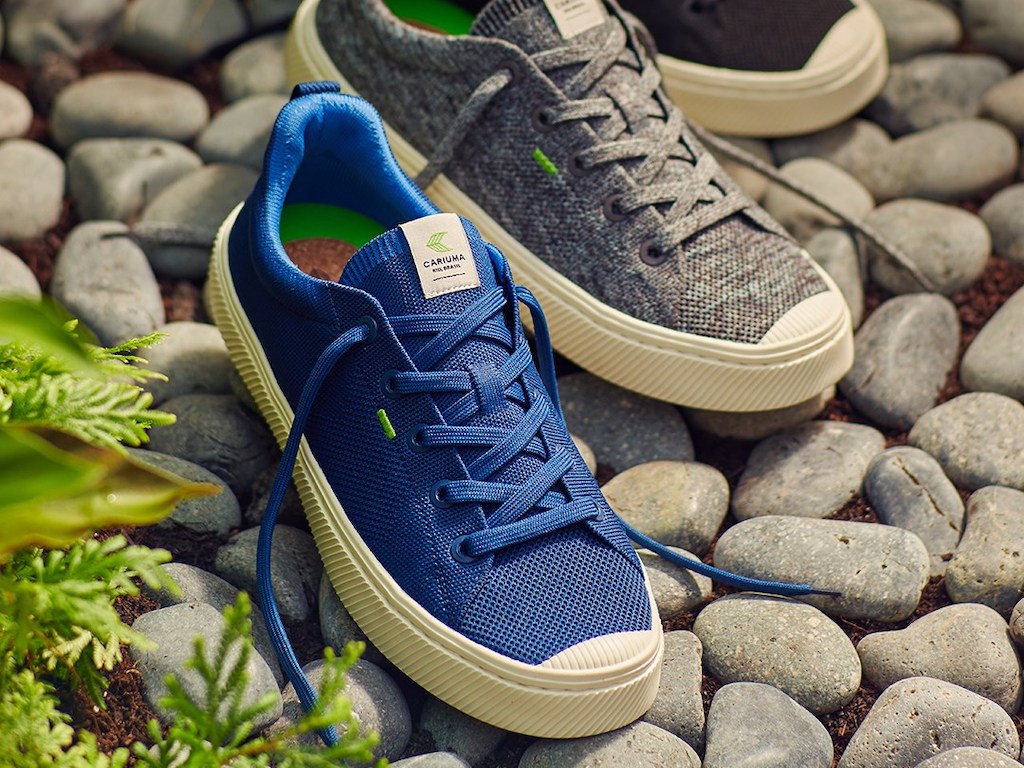4 Mins Read
Founded in 2018, Cariuma is a Rio-based sneaker startup founded by David Python and Fernando Porto, two former executives in the luxury footwear industry who left their roles to create a new brand that put sustainability first. Choosing to reinvent the sneaker game with their eco ethos, Cariuma’s range of shoes are designed to be long-lasting, are made from materials sourced from manufacturers that recycle and reuse 100% of the water in the process, and all their deliveries are carbon neutral and packaged in recycled materials. We spoke to Fernando, the brand’s co-founder and chief creative officer, who shared with us his insights about the rising demand for responsible and sustainable footwear amid the conscious consumerism trend, and what’s in store for Cariuma in the future.

GQ: Though Cariuma does offer a number of vegan shoes, we know that not all of your sneakers are vegan-friendly. Is it important for the brand to launch more vegan shoes in the future?
FP: Yes of course! We believe that creating new vegan materials is incredibly important. We are working on the development of a few materials that could replace leather and suede, but the most important thing is that you can replicate their properties, not only their looks. We believe that the longevity of the product life-cycle is the most important thing, so we will always focus on creating not only the new vegan product but a vegan product that is truly durable and long-lasting. So stay tuned for 2021.
We will always focus on creating not only the new vegan product but a vegan product that is truly durable and long-lasting.
GQ: Do you think that vegan materials are an essential part of sustainability? Will Cariuma one day transition to only 100% vegan products?
FP: We believe that lowering our impact should be everyone’s commitment and obsession. Vegan materials, if made in a sustainable way, like if they are recycled or made from bio-based materials, can achieve that. It’s important to know that not all vegan materials are sustainable – the vast majority nowadays come from oil and made from virgin plastics. As I mentioned, we are working towards increasing our vegan line, and by 2021 the majority of our products will be 100% vegan.
GQ: Cariuma recently launched a new shoe line, the IBI. Now challenging was it to launch a new product amid the Covid-19 pandemic?
FP: We are lucky that our partners are truly amazing and committed to getting Cariuma products out to future happy feet around the world. It’s always challenging to launch new products – especially the ones with a big commitment to sustainability and performance like our IBI line. But I think the world is actually eager for products like this, now during Covid, more than ever. This is because the crisis has made everyone more conscious about how to consume and what to consume.

We put people at the centre of everything we do. It’s our belief that sustainable practices begin with sustainable respect, and work conditions for every single person who works with our brand.
GQ: How have sales performed for Cariuma during the pandemic?
FP: We are a digitally native sneaker brand that is very conscious and focused on sustainability. In our case, we have seen a tailwind online. Casual categories and sustainability have been trending, so in a weird way, I’d say we have been very lucky.
GQ: How do you define sustainability at Cariuma? What is your sustainability philosophy?
FP: To us, sustainability starts with the people who work with and are part of Cariuma’s ecosystem. We put people at the centre of everything we do. It’s our belief that sustainable practices begin with sustainable respect, and work conditions for every single person who works with our brand. This is why we maintain ethical factories and employ a strict code of conduct in our day-to-day operations. Beyond that, we believe that true sustainability stems from creating a longer-lasting product with premium natural materials. The team and I spent over a year and a half to create a single new silhouette, looking at consumer needs to make informed choices and reducing impact and waste through thoughtful design. Of course, we also use better for the environment materials, like our natural rubber soles, organic cotton canvas, and our work with bamboo, which is a carbon-negative material.
Lead image courtesy of Cariuma.




